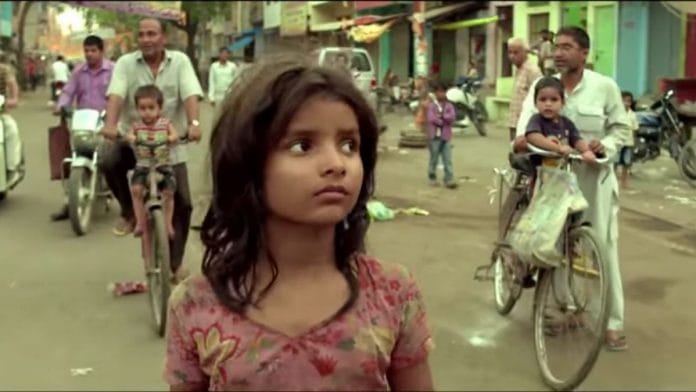Of all the issues that plague our country, perhaps the most heartbreaking is child labour and abuse. Children as young as eight years old are sold and forced to work in inhuman conditions for 14 to 15 hours a day. While there are laws that criminalise this practice, much like most other heinous acts, it often goes unchecked thanks to a broken and corrupt system. Bhramanand Siingh’s film Jhalki looks at this tragic scenario.
Jhalki is young girl, not more than 12 years old, who lives with her parents and younger brother, Babu, in rural Uttar Pradesh. Her hamlet is regularly visited by a wealthy businessman, who takes the villagers’ young sons to the city, promising employment and earnings.
Of course, this is just a ruse as he sells these boys to local factories where they are made to live and work in horrific conditions. An accident leaves Jhalki’s parents in a bind, and they sell Babu to this man, but Jhalki, whose entire life revolves around her younger brother, is adamant and refuses to let him go.
Panicked, she follows Babu and the businessman to the city. Despite her best efforts, Babu is sold off to a textile factory and Jhalki roams the unfriendly streets of the big city trying to find her brother. She enlists the help of the police and the government is soon disillusioned by how the real world works — by actually not working.
The film — starring Aarti Jha, Sanjay Suri, Divya Dutta, Tannishtha Chatterjee, and Boman Irani — tries to take a hard look at bonded labour and child abuse but fails to bring it home. The first half of the two-hour film sets the stage well. Jhalki and Babu’s circumstances are explored in detail and the child actors do a marvelous job of earning the audience’s empathy. But the second half fails to make a hard-hitting impression.
It is the predictable storyline that works against the film’s effectiveness. You can tell what comes next but the performances and fast pace of the film makes you hope for a shock. When dealing with a sensitive topic like this, which isn’t always top of the mind for the audience, it’s not enough to be realistic. The message has to come through in an effective manner, so that people don’t forget it the moment they walk out of the theatre.
The second half of the film also rushes through the story, with many convenient developments. All of Jhalki’s roadblocks — like the government, corruption, lack of public safety, lack of resources — are conveniently swept away with the appearance of a journalist and an activist. While the need for a hopeful narrative is understandable, it shouldn’t compromise the message of the story. The cinematography is carefully done, with the intention of being as authentic as possible. The authenticity also shows through the dialogue. But the care shown to the film’s technical aspects just don’t reflect in the narrative.
Still, the film does serve an important reminder — the need for good, fearless journalism and activism. As the gatekeepers of society, journalists’ voices are of the utmost importance. But for them to work effectively in this system, they need resources and protected rights. It is not only these two aspects that will solve the entire problem, but they are vital to the solution. Unfortunately, this ideal has never been lived up to, despite what our country’s Constitution says.
But if more films like Jhalki are made and released to wider audiences, hopefully, one day change will come.
Also read: Assam child protection body will launch app on 14 November to fight child trafficking






